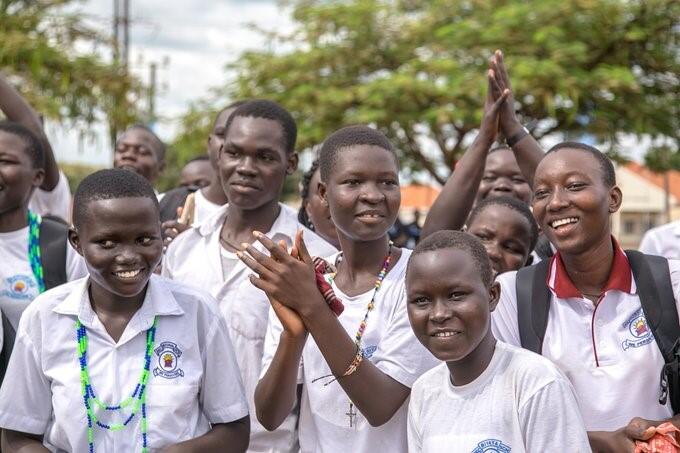In 2019, at the Nairobi Summit on ICPD25, nations, civil society, development institutions and others called for the protection of the right to bodily autonomy and integrity, building on international commitments in the 2030 Agenda for Sustainable Development.
Bodily autonomy in the context of sexual reproductive and rights simply means that individuals are able to make informed choices and decisions regarding their sexual and reproductive health needs, and to do so free from discrimination, coercion and violence. At UNFPA, the sexual and reproductive health agency, realizing bodily autonomy is everything we do.
Therefore, this year’s global theme for World Population Day: “Rights and Choices are the Answer: Whether baby boom or bust, the solution lies in prioritizing the reproductive health and rights of all people,” is very critical.
Similarly, the national theme: 'COVID-19 and Beyond: A Spotlight on Uganda's Adolescent Reproductive Health' resonates well with the current context in recognition of the escalating adolescent reproductive health challenges that have been compounded by the COVID-19 Pandemic.
COVID-19 is a crisis with an adolescent girl’s face. The pandemic has exacerbated gender inequities and gender-based violence, with increased incidence of violence under lockdowns. There are also signs that teenage pregnancies, child marriage and Female Genital Mutilation (FGM) are increasing, and failing to be mitigated, as programmes to address these sexual reproductive health and rights challenges have been interrupted. Social norms and peer pressure continue to limit girls to make free and independent choices about their sexual and reproductive health.
Of the many obstacles that still block girl’s path to equality, one of the most pervasive is the lack of bodily autonomy – the issue explored in UNFPA’s 2021 State of World Population Report. Titled “My body is my own: claiming the right to autonomy and self-determination”, it shows that nearly half of women and girls in countries where we have data, lack the power and agency to make choices about their bodies, without fear of violence or having someone else decide for them. Globally, only 55 per cent of women and girls are fully empowered to make choices over health care, contraception and the ability to say yes or no to sex.
Data and projections have suggested that, in some low- and middle-income countries, the pandemic has interrupted access to family planning services, even increasing unintended pregnancies among vulnerable groups. For instance, a UNFPA 2021 analysis of the effects of COVID-19 on family planning service delivery in Uganda shows a decline in family planning commodities dispensed by 26.7 percent during the lockdown between April and September 2020.
In Uganda, the incapability for bodily autonomy has manifested in the grim statistics with teenage pregnancies stagnating at 25 percent, with 42 percent of these unintended, according to the Uganda Demographic and Health Survey (UDHS, 2016). Sexual violence among adolescent girls stands at 45 percent. In the current COVID-19 context, a total of 14,134 defilement cases were reported across the country according to the Annual Police Crime Report 2020, an increase from 13,613 in 2019.
As we see an upsurge in gender-based violence, in child marriage, in teenage pregnancy, and as barriers are thrown up to protective sexual and reproductive health services, we also see the young person struggling to catch-up with the possibilities of keeping in school, fulfilling their potentials and living their dreams. One-third of Uganda’s student’s complete primary education, and enrollment in secondary school has stalled at 30% for decades.
At UNFPA, we stand with women and girls in claiming these rights and choices, throughout their lives. Fulfilling rights to bodily autonomy and integrity requires that stakeholders make quality sexual and reproductive health information, services and available and accessible.
Let us help protect and fulfil the rights and choices of adolescent girls through sexuality education and by advocating for girls to complete their schooling. Having accurate information about one’s own body and health and understanding what it means is indispensable to exercising bodily autonomy. It is a gateway to fulfilling ones’ full potential.
From global, regional and national evidence we know what works to protect the sexual and reproductive health and rights of women and girls- what we need to implement what works in scale! This is a call on governments, civil society and communities to join UNFPA in the effort to end violence and harmful practices by 2030. We must end this scourge, end impunity and leave no one behind.
Mr Alain Sibenaler is the Representative, UNFPA Uganda


